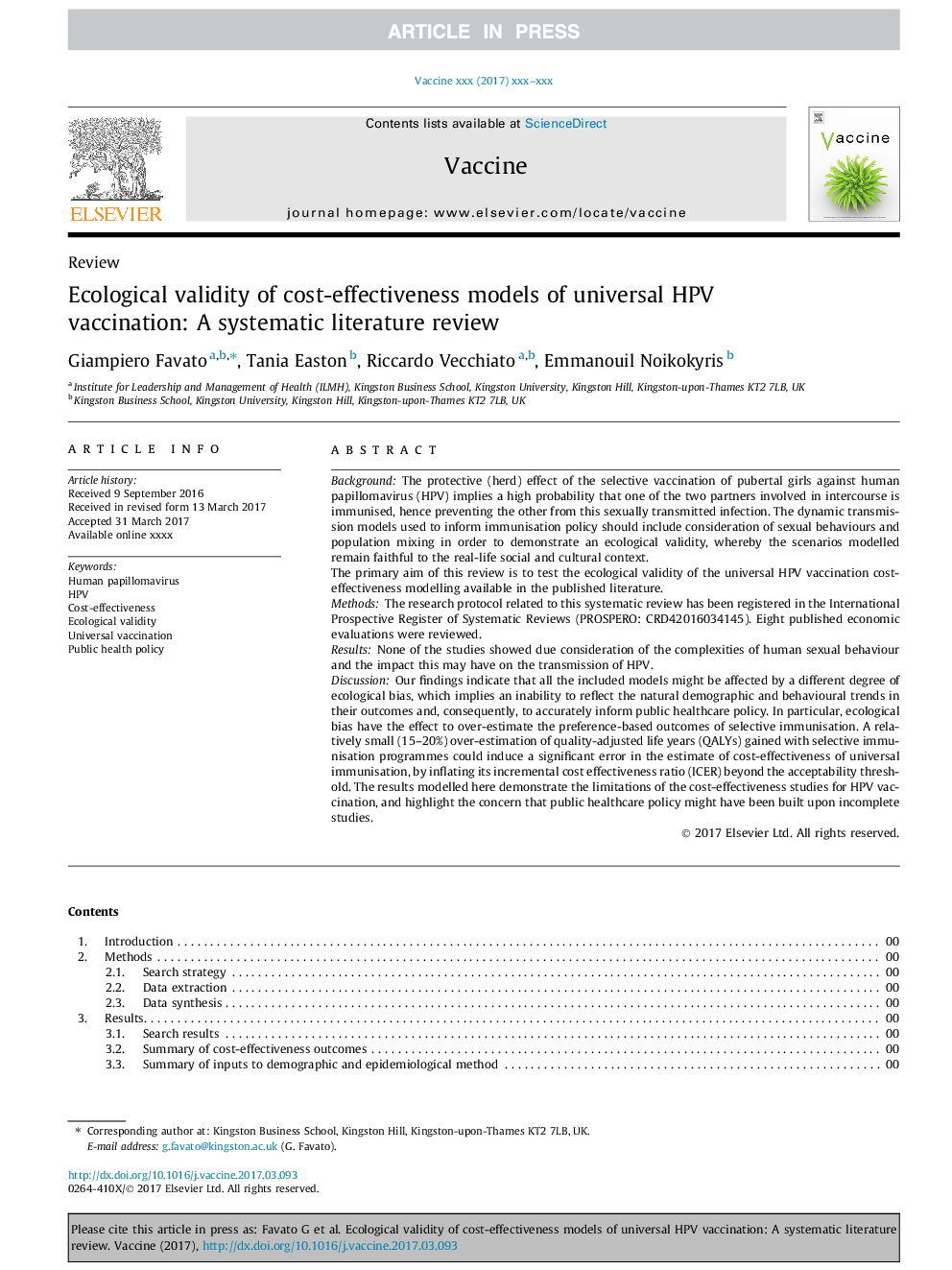| Article ID | Journal | Published Year | Pages | File Type |
|---|---|---|---|---|
| 5537056 | Vaccine | 2017 | 11 Pages |
Abstract
Our findings indicate that all the included models might be affected by a different degree of ecological bias, which implies an inability to reflect the natural demographic and behavioural trends in their outcomes and, consequently, to accurately inform public healthcare policy. In particular, ecological bias have the effect to over-estimate the preference-based outcomes of selective immunisation. A relatively small (15-20%) over-estimation of quality-adjusted life years (QALYs) gained with selective immunisation programmes could induce a significant error in the estimate of cost-effectiveness of universal immunisation, by inflating its incremental cost effectiveness ratio (ICER) beyond the acceptability threshold. The results modelled here demonstrate the limitations of the cost-effectiveness studies for HPV vaccination, and highlight the concern that public healthcare policy might have been built upon incomplete studies.
Keywords
Related Topics
Life Sciences
Immunology and Microbiology
Immunology
Authors
Giampiero Favato, Tania Easton, Riccardo Vecchiato, Emmanouil Noikokyris,
